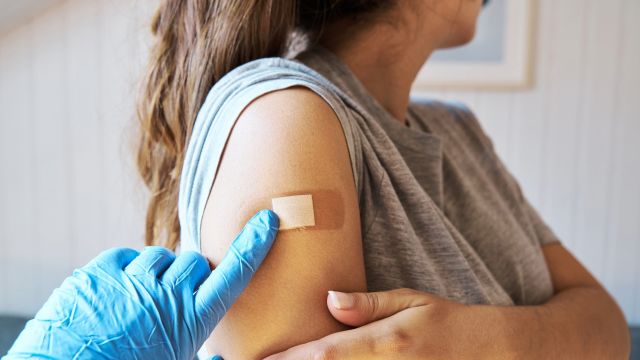Updated on July 12, 2024
Primary immunodeficiency (PI) refers to a group of hundreds of conditions with a common characteristic—a genetic mutation that impairs the normal functioning or development of the immune system. In some cases, these genetic mutations are inherited from a person’s biological parents. In others, the underlying genetic mutation occurs spontaneously, or on its own. PIs are also known as primary immunodeficiency disorders (PIDDs) and inborn errors of immunity (IEI).
What healthcare providers treat PI?
As a person with PI or the caregiver of a person with PI, you will likely work with a multidisciplinary team—different healthcare providers with different specialties who work in collaboration with one another. These healthcare providers typically include:
Pediatrician/Primary Care
PI impacts the normal functioning of the immune system, reducing the immune system’s ability to fight off viruses and bacterial infections. Infections are usually the first sign of PI—especially infections that recur, are difficult to treat, or are uncommon. The first healthcare provider a person with PI will consult with will often be the healthcare provider they see for illnesses and infections. For children and adolescents, this is a pediatrician. For adults, this will be a primary care provider.
This healthcare provider may prescribe treatments, order additional tests, and refer you to an immunologist or other specialists. They will also continue to play a role in routine healthcare, including vaccinations.
Immunologist
Also known as an allergist/immunologist, an immunologist is a medical doctor that specializes in disorders that affect the immune system. This is the healthcare provider that will oversee diagnosis. Diagnosis involves blood tests to check levels of specific proteins, immune cells, and blood cells to determine how the immune system is functioning. A diagnosis may also involve genetic testing to help identify the specific mutations that are causing PI.
An immunologist will also oversee treatment for PI, which can include:
- Treating infections with antiviral, antibiotic, or antifungal medications.
- Preventing future infections with vaccinations, hygiene, food safety, and precautions like avoiding crowds.
- Immunoglobulin therapy, infusions of immune proteins called immunoglobulins, which help the immune system function better.
Hematologist/oncologist
In some cases, PI can be treated with a hematopoietic stem cell transplant (HSCT), also known as bone marrow transplant. This procedure will be overseen by a medical doctor called a hematologist/oncologist.
While this can potentially cure PI, it cannot be used to treat all forms of PI and not every person will be a candidate. It requires a matching donor, and the person receiving the therapy will undergo chemotherapy to prepare the immune system for the transplant. HSCT is typically used in cases where PI is severe and life threatening.
Genetics Counselor
As mentioned above, identifying genetic mutations may be a step in diagnosis. This may be referred to as genetic testing, gene sequencing, or molecular diagnosis. This testing examines the DNA of the person with PI to look for abnormalities. A genetics counselor can guide you through this process, explaining how it works, what it can tell you, what it cannot tell you, and what the results may mean for treatment. There are specific therapies available for specific types of PI, and treatment options continue to evolve.
For prospective parents with a family history of PI, a genetics counselor can also provide guidance on the risk of passing a mutation on to biological children.



